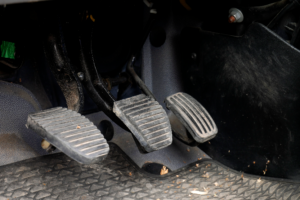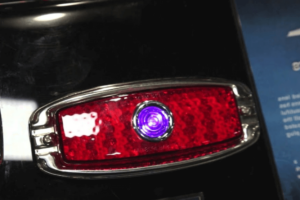If your car has some problems, it will communicate with you, just like a newborn baby who will cry out to tell you, “change my diapers?” So, your car may make a grinding noise when turning. What are the causes, and how to fix them?
One of the common reasons you hear grinding noise when turning is poor wheel bearings. The friction between two separate parts causes the grinding sound. There will be friction between two moving metal parts if the wheel bearings are worn out. A grinding sound will be produced as you turn the steering wheel and the car bends.
The wheel bearings are installed between the wheel and the axle. They are there to minimize the friction between these two metal components for your car to run smoothly. When you hear a grinding sound, that could mean your wheel bearings are worn out. You should replace them immediately.
Read on to learn why you hear a grinding sound when you turn your steering wheel and how you can fix them.
Grinding Noise When Turning
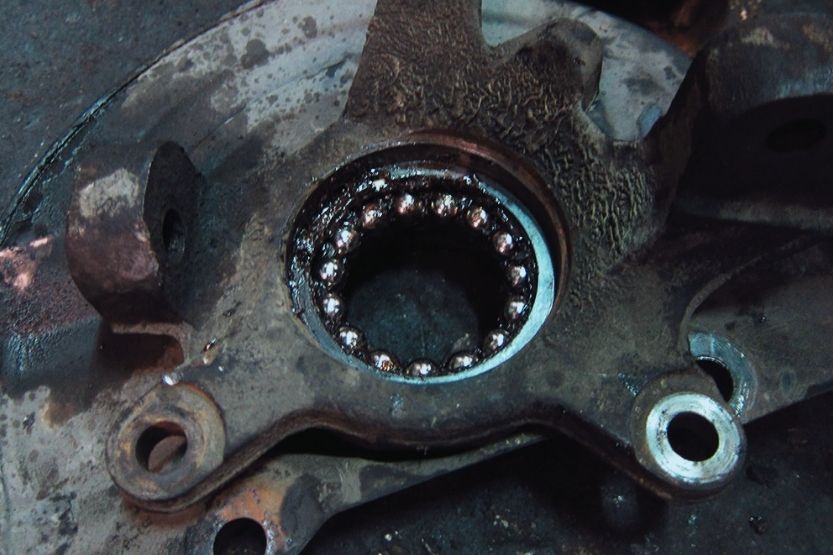
One of the causes of grinding noise when turning is poor wheel bearings. When wheel bearings go bad, they cause friction between two moving metal parts of your car. This leads to grinding when your car bends when turning the steering wheel.
The best way to correct this issue is to replace your wheel bearing. It is installed between the wheel and the axle. The wheel bearing reduces friction and allows your car to move smoothly.
So, if you are hearing a strange grinding sound when turning, the most likely reason is that your wheel bearing is already worn out. There are other reasons for the grinding noise when turning. And this is what I will discuss in the rest of this article.
Causes of Grinding Noise When Turning and Their Fixes
Car mechanics will usually diagnose car problems by listening to the noises or strange sounds they produce. In the same way, you can identify the cause of the problem by recognizing where the sound is coming from.
So, when you turn and hear the grinding noise, determine where it is coming from. This will help you isolate the source.
Here are some probable reasons why your car produces a grinding sound when turning:
1. Bad Wheel Bearings
Serve as a Buffer Between the Wheel and the Axle
The most common cause of grinding noise when turning the steering wheel is poor wheel bearings. Wheel bearings serve as a buffer between the wheel and the axle. A wheel bearing prevents friction between your car’s two moving metal components by acting as a cushion.
Change the Wheel Bearing as Soon as Possible
But when the wheel bearing has already gone bad, you will surely hear that strange grinding sound when turning. That annoying sound will persist when you drive faster. To stop the noise, you need to change the offending wheel bearing as soon as possible.
2. Failing Brake Pads and Rotors
Brake pads are some of the most consumable and replaceable parts of a vehicle. They always come in contact with the rotor. When these pads are bad, they can also cause grinding sounds when turning and braking.
Cause the Metal Part to Contact the Rotor
Brake pads that are already worn out cause their metal part to contact the rotor directly. That creates an annoying grinding noise as they turn or rotate at fast speeds. This situation can also create sparks which can cause more dangerous problems.
Inspect the Rotor
You will know if they are causing the grinding noise by inspecting them. Check if the rotor has already eaten out the meat of the brake pad. If there’s no more pad material on the brake pad, it is already making metal-to-metal contact with the rotor. That produces the grinding sound.
3. Power Steering Problems
A grinding noise can also result from your power steering system problems when turning the steering wheel. The force you need to produce in turning the steering wheel is reduced by the power steering system of your car.
Either an Electric or Hydraulic System
Power steering is either an electric or hydraulic system. If it is a hydraulic system, the hydraulic pressure is provided by a rotary vane pump. This pump develops high-pressure fluid through the system, making steering the wheel easier.
Problem Develops in the Power Steering Fluid
Typically, the problem develops in the power steering fluid. Small air bubbles may develop in the fluid, which causes the pump to vibrate or whine. It could also be that your car has a spoiled fluid, and it can’t efficiently pump anymore. Or it could simply be a lack of fluid in the system.
4. CV Joint Issues
A failing Constant Velocity (CV) joint could cause the grinding noise. Although this is rare, it is still one of the possible reasons why you hear the grinding noise when you are turning your car either to the right or the left at low speeds.
Transfer Power from the Transmission to the Wheels
The function of CV joints is to transfer power from the transmission to the wheels. In your car are two CV joints, the inner CV joint, which connects the transmission to the driveshaft, and the outer CV joint, which connects the wheels to the drive shaft.
Susceptible to Damage Because of Road Debris
In most cars, the CV joints tend to fail first. The reason is that it is the component that bears the pressure and the one that is susceptible to damage because of road debris.
Signs of a Failing CV Joint
You can check if your CV joints are already developing some problems if you notice grease leaks from tiny cracks or if there is dark grease spread over the inner part of the wheel rim.
Fix the Issue Immediately
If you find that a bad CV joint is causing the grinding noise, you need to fix it immediately because this problem can lead to loss of control of your vehicle.
5. Brake Issues
Problems with the brake assembly of your car can also cause it to produce a grinding noise when you are turning your car. There are several reasons why your brake system may be causing this problem.
Causes
Brake issues might arise due to issues with the following:
- Brake caliper,
- Brake pad,
- Loosely connected brake shield.
- Misaligned rotor.
Inspect the Car’s Braking System
You have to inspect your car’s braking system to pinpoint the exact cause of the grinding noise. A qualified mechanic is the best person to do this inspection and its individual fix.
6. Bad Water Pump
Your car has a water pump that is part of its cooling system. It circulates the coolant so your car’s engine can maintain its optimum operating temperature and not overheat while you are driving.
If this pump is going bad, it will also produce strange sounds that you will not fail to hear. The sound will be similar to grinding metal which you can easily mistake for the sounds of damaged suspension components. Fixing or replacing this pump is also best left to a qualified mechanic.
7. Bad Control Arm Bushings
Rubber Compounds Become Brittle
Why would a malfunctioning control arm bushing cause the grinding noise when you turn your wheels, you may ask? Bushings consist of rubber. Over time and under stress, their rubber compounds get harder and start developing cracks.
Affects Your Driving Experience
When bushings develop cracks, this will affect your driving experience. Your car won’t be as stable on the road as before. It could pull on one side, and your car may develop further problems, including strange grinding sounds while negotiating a turn.
While bushings don’t always grind, if you have never replaced them after over 150,000 miles of driving, there will be no more rubber bushings left on the control arm.
Get Help from a Qualified Mechanic
It could be grinding itself against the car chassis. You will notice the sound when turning your wheels on a corner. A replacement of the control arm bushing is in order here. To fix this issue, you need a qualified mechanic.
8. Damaged Radiator Fan
Can Break Due to Old Age
Grinding noise while your wheels are turning can also be due to a damaged radiator fan. The fan can break because of old age. Like the alternator, the air conditioning compressor, and the CV axles, radiator fans also have bearings that help them spin smoothly.
After many long years of use, these bearings will develop problems and eventually fail. When they finally go bad, the fan will lose its balance.
Let a Certified Mechanic Fix This Issue
Some parts may grind against its housing or even against the radiator. That produces the grinding noise when you turn the steering wheel. Again, the best person to solve this problem is a certified car mechanic.
Again, why do you hear grinding noise when turning? Wheel bearings are located between the wheel and the axle. A grinding noise means that you have a worn-out wheel bearing, so you need to replace it.
What Causes a Creaking Noise While Driving?
How to Fix Grinding Noise When Turning Issue
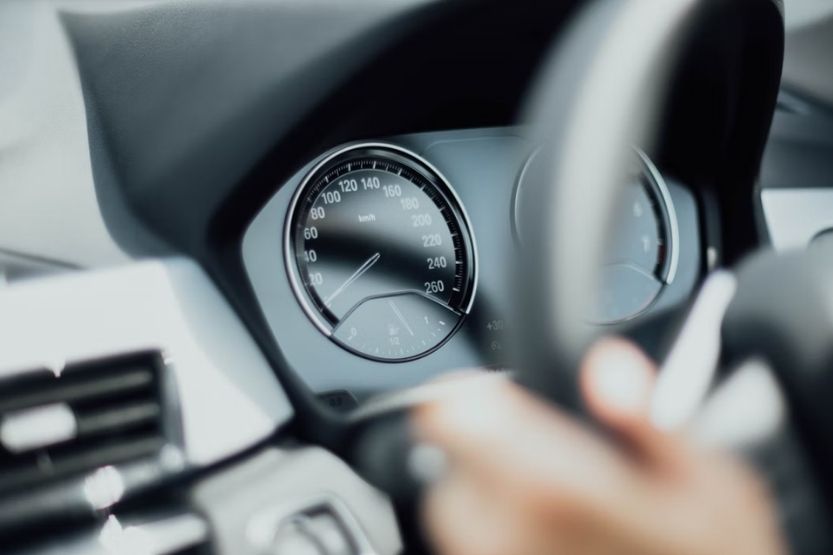
You should not get too disturbed when you hear grinding sounds while turning your car. If you know the possible reasons why this can happen, you will be able to choose the right fix for a particular cause. What are the general fixes for this problem?
1. Locate the Source of Grinding Sound
The first order is to locate where the grinding sound is coming from. There are many areas in your car where this strange sound can come from. It can come from the front of your car, its rear, or perhaps in the middle.
Diagnose the Problem
When you have isolated the real culprit, that’s the only time you can start to diagnose the problem. You need to check the component you think is causing the issue and its current condition compared to its new features and dimensions.
Immediately Replace Damaged Component
If the component is damaged, you need to replace it as soon as possible. I have already mentioned the car components that may cause the grinding noise when you turn your wheels.
So, if you find any of these components as the actual cause of the problem, replace them or have them replaced by a qualified mechanic.
2. Use Sound Insulation Proofing Materials
Sound insulation is one of the fixes you can use to minimize the strange noises you may hear from your car while driving it. Some people believe that this is the most effective solution to fixing this problem.
Isolates the Noise at the Source
Sound insulation isolates the noise at the source even before it enters the cabin. It also reduces the oscillation frequency, meaning it doesn’t stop the noise altogether, but it helps reduce its vibrations, so you won’t be able to hear the full sound volume of the noise.
However, this fix is not always possible. For instance, some tires are noisier than other tires because of their tread designs. Isolating the noise that comes from such tires is very difficult.
3. Use Soundproofing Materials
Use Rubber or Plastic Bushings
This fix is done mainly on the metal parts of the car. This could be the most practical solution if you hear grinding noise when you turn your wheels. Using rubber bushings between two metal parts is soundproofing those two metal parts.
Plastic bushings can also perform the same function. The addition of sponges to the metal shafts enhances its structural integrity and prevents it from vibrating. There are car manufacturers which attach flexible soundproofing panels inside the metal plates of their vehicles.
For example, design engineers at Ford Motor Co. use a huge set of built-in speakers and turn their volume at varying levels. Tires vibrate differently according to the different sound volume levels.
Adding Insulation Also Adds Weight
Then they use a laser scanner to check the tire spots that vibrate the most. These are the only tire spots where Ford engineers need to add sound insulation. However, adding insulation also adds weight to the car’s overall weight, increasing its fuel consumption.
So, the engineers must carefully compute the correct amount of sound insulation to achieve the best soundproofing and fuel economy for the car.
4. Alter the Negative Frequency
Altering or changing the negative frequency of material is also used in car manufacturing as a soundproofing technique. We can’t hear all the sounds there are in this world. There are very high frequency and shallow frequency sounds that our ears cannot process.
The negative frequencies of these two sound frequency levels are the things that prevent us from hearing them.
Car manufacturers utilize the phenomena of negative frequency to increase the weight or increase the hardness of the car part or equipment. That’s how they change the oscillation of that particular part or equipment.
Frequently Asked Questions
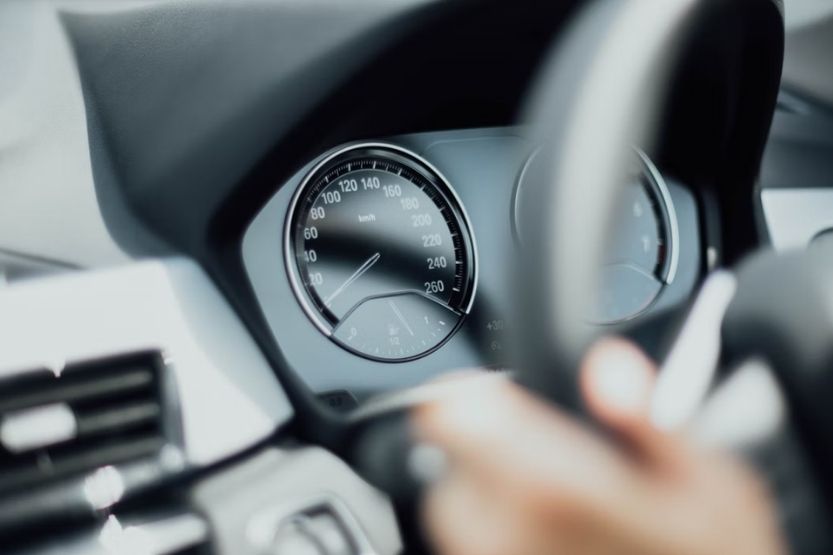
To help you remember the information I have given you above about why you hear grinding noise when turning your wheels, I have listed the most frequently asked questions about this topic and their respective answers:
Why Does My Car Make a Grinding Noise When Turning?
Most probably, the wheel bearings of your car have already gone bad. Wheel bearings prevent friction between the moving metal parts of the wheel and the axle. If the wheel bearings are worn out, there will be friction between these moving parts, which comes out as grinding sounds:
How Do You Fix This Grinding Noise?
There’s only one way to remove the grinding noise if the culprit is wheel bearings: replace them, and you instantly solve the problem. But there are other reasons you hear this grinding sound in your car while it turns. Each of these reasons has its particular fix.
Generally, you have to pinpoint the real cause of the problem. You will need to isolate the spot where the grinding sound is coming from. And when you have found the offending car component, the only solution you can apply is changing or replace that part.
What Are the Other Causes of Grinding Noise When Turning?
Some of the other reasons why your car is producing grinding noise when turning are:
- Failing brake pads and rotors
- Problems with the power steering system
- Issues with the CV Joint
- Problem with the brakes
- Bad water pump
- Problems with the control arm bushings
- Damaged radiator fan
What General Fixes Can You Suggest to Solve This Problem?
There are several general fixes that you can do to stop the grinding noise:
Isolate the Noise
Trace the spot where the grinding sound is coming from and then use a suitable solution to fix the problem.
Use Soundproofing Materials
Car manufacturers use rubber and plastic bushings on metal parts that move together. These bushings prevent the two metal parts from coming into contact.
Change the Negative Frequency
There are high and low-frequency sounds that our human ears can’t hear. Car manufacturers use this concept to design car panels and components that are thicker and heavier so their oscillations can be changed. They won’t vibrate as much, so you don’t hear their sounds.
In Closing: Grinding Sound When Turning
One of the reasons for the grinding sound when you turn your steering wheel is poor wheel bearings. That sound is caused by the friction between two moving metal parts.
If you have wheel bearings that are already worn out, the metal parts will come into contact with each other, and the friction between them will increase.
As a result, you will hear the grinding noise. The best fix for this problem is to replace the wheel bearings entirely. This is just one of the reasons for this grinding sound in cars. Fortunately, they all have their particular fixes that remove the problem.
Read next:
Clunking Noise When Driving – Accelerating, Slow, Straight, or Over Bumps

![Grinding Noise When Braking [9 Possible Causes and How to Fix] grinding noise when braking](https://roadsumo.com/wp-content/uploads/2021/06/grinding-noise-when-braking-150x150.jpg)
![Clicking Noise When Turning [Causes and How to Fix] clicking noise when turning](https://roadsumo.com/wp-content/uploads/2022/12/clicking-noise-when-turning-150x150.jpg)
![CV Joint Noise [When Driving Straight or Turning] cv joint noise](https://roadsumo.com/wp-content/uploads/2021/06/cv-joint-noise-150x150.jpg)
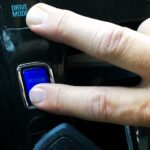
![Noise When Braking at Low Speed [Causes and How To Fix] noise when braking at low speed](https://roadsumo.com/wp-content/uploads/2021/07/noise-when-braking-at-low-speed-150x150.jpg)
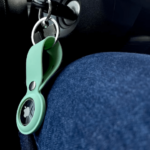
![Read more about the article BMW Drivetrain Malfunction [Causes, Reset, and Repair Cost]](https://roadsumo.com/wp-content/uploads/2022/03/BMW-drivetrain-malfunction-causes-300x200.jpg)
